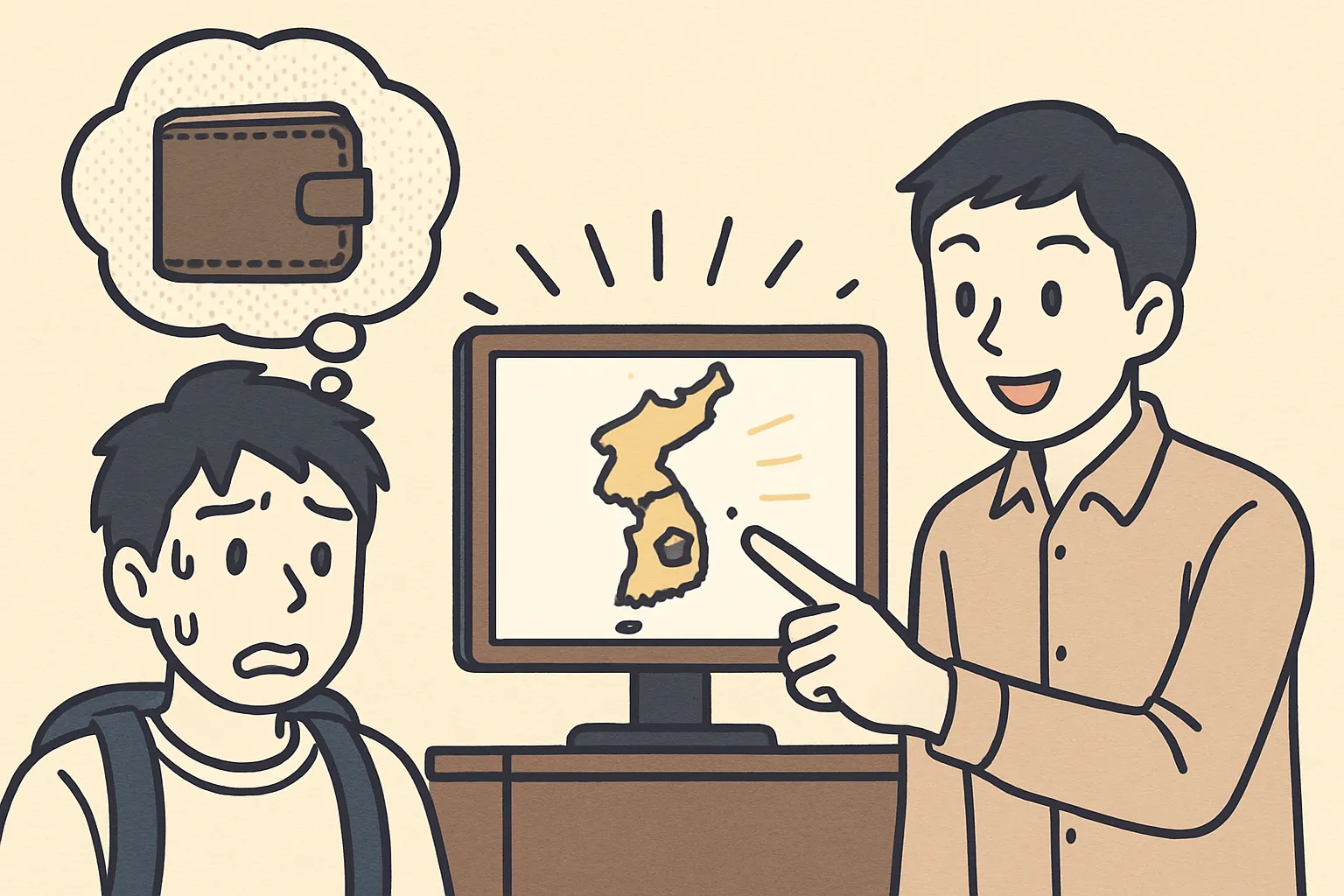Who Am I? Korean Phrases for Self-Discovery
Hello! Welcome to Maeil Hangeul, the place to upgrade your Korean skills!
Today, we’re diving into a deep and fascinating topic: how our relationships with others shape who we are. This is a conversation you might have with a close friend late at night or when you’re thinking about your life’s direction. In Korea these days, discussions about personality, identity, and compatibility are everywhere, especially with the massive popularity of the MBTI personality test. So, let’s learn some advanced phrases to help you express these complex ideas like a native speaker!
Core Expressions You Need to Know
Here are some essential phrases for discussing identity and relationships.
1. 영향을 미치다/받다 (yeonghyang-eul michida/batda)
- Pronunciation: [yeong-hyang-eul mi-chi-da / bat-da]
- English Meaning: To influence / To be influenced by
- Detailed Explanation: This is a more formal and profound way to talk about influence. 미치다 means “to exert” or “to have” an influence on someone or something, while 받다 means “to receive” an influence. While you can use simpler verbs, using this phrase will make your Korean sound much more sophisticated, especially in writing or serious conversations.
- Example: 부모님은 저의 가치관에 큰 영향을 미치셨어요. (My parents had a big influence on my values.)
- Example: 저는 좋은 친구들에게 긍정적인 영향을 받았어요. (I was positively influenced by my good friends.)
2. 정체성을 형성하다 (jeongcheseong-eul hyeongseonghada)
- Pronunciation: [jeong-che-seong-eul hyeong-seong-ha-da]
- English Meaning: To form one’s identity
- Detailed Explanation: This is a key phrase for our topic. 정체성 (jeongcheseong) means “identity,” and 형성하다 (hyeongseonghada) means “to form” or “to build.” You use this phrase when discussing the process of discovering or creating your sense of self, often through various life experiences and relationships.
- Example: 청소년기는 정체성을 형성하는 중요한 시기입니다. (Adolescence is an important period for forming one’s identity.)
3. 유대감을 느끼다 (yudaegam-eul neukkida)
- Pronunciation: [yu-dae-gam-eul neu-kki-da]
- English Meaning: To feel a sense of bond/connection
- Detailed Explanation: 유대감 (yudaegam) refers to a deep, strong feeling of connection, solidarity, or belonging with another person or a group. It’s a much stronger word than simply feeling “close” (친하다). You would use this to describe the powerful bond you feel with family, a lifelong friend, or a team you’ve worked closely with.
- Example: 우리는 같은 목표를 공유하며 강한 유대감을 느꼈어요. (We felt a strong bond while sharing the same goal.)
4. 가치관이 맞다/다르다 (gachigwan-i matda/dareuda)
- Pronunciation: [ga-chi-gwan-i mat-da / da-reu-da]
- English Meaning: To have matching/different values
- Detailed Explanation: 가치관 (gachigwan) means “values” or “one’s view of life.” In Korea, discussing whether your values “match” (맞다) or are “different” (다르다) is extremely common when talking about the compatibility of friends, partners, or even colleagues. It’s considered a fundamental aspect of any deep relationship.
- Example: 그 사람과는 가치관이 잘 맞아서 오랫동안 좋은 관계를 유지하고 있어요. (Our values match well, so we have maintained a good relationship for a long time.)
Example Dialogue
Let’s see how these phrases work in a real conversation between two friends, Minjun and Sora.
민준 (Minjun): 요즘 회사에서 새로 오신 팀장님께 많이 배우고 있어. 정말 멋진 분이야.
(I’m learning a lot from the new team leader at work these days. She’s a really amazing person.)
소라 (Sora): 오, 그래? 어떤 점에서?
(Oh, really? In what way?)
민준 (Minjun): 일에 대한 가치관이 저랑 잘 맞아서 그런지, 그분께 긍정적인 영향을 많이 받고 있어. 제 정체성을 형성하는 데에도 도움이 되는 것 같아.
(Maybe it’s because our values regarding work match well, but I’m being positively influenced by her a lot. I feel like it’s even helping me form my identity.)
소라 (Sora): 와, 정말 좋은 멘토를 만났네. 그런 사람과 깊은 유대감을 느끼면 일하는 게 훨씬 즐겁지. 혹시 두 사람 MBTI 궁합도 찾아봤어? (웃음)
(Wow, you met a really great mentor. When you feel a deep bond with someone like that, work becomes much more enjoyable. Have you checked your MBTI compatibility score? (laughs))
Culture Tip: The MBTI Craze and Korean Identity
You might have noticed Minjun and Sora mentioned MBTI. In South Korea, the MBTI personality test isn’t just a fun quiz—it’s a cultural phenomenon. Why?
Koreans use it as a social tool to quickly understand themselves and others. It’s a common icebreaker where people share their 4-letter type (e.g., ENFP, ISTJ). This framework helps them understand why their 가치관이 맞다 (values align) with some people and not others. It’s become a modern way to analyze interpersonal dynamics and the 영향을 주고받는 (give-and-take of influence) in relationships.
When you see K-pop idols or drama characters discussing their MBTI, they are participating in a nationwide conversation about identity and connection. So, if you want to sound like a true insider, try using today’s phrases when discussing your MBTI type with a Korean friend!
Wrap-up & Practice Time!
Great job today! We learned some sophisticated phrases to discuss how relationships shape us: 영향을 받다, 정체성을 형성하다, 유대감을 느끼다, and 가치관이 맞다.
Now, let’s put your knowledge to the test!
- Fill in the blank:
가장 친한 친구는 저의 ( ________ )에 큰 영향을 미쳤어요.
(My best friend had a big influence on my ________.)
(Answer: 가치관) -
Your Turn:
Who has influenced you the most in forming your identity? Write a short sentence in Korean using one of the expressions we learned today.
Leave your answers in the comments below! We’d love to see how you use these powerful expressions. See you next time at Maeil Hangeul






